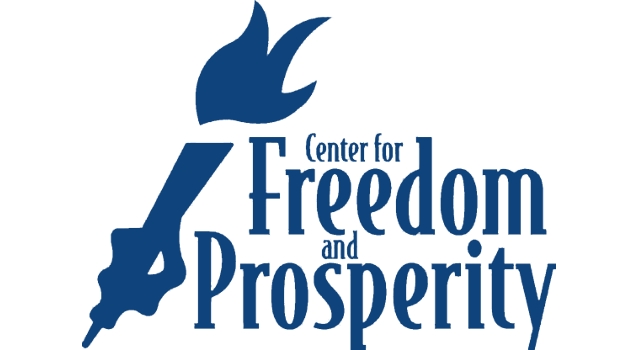I have a new article for National Review about the fallout from the Supercommittee.
Among the points I make are:
o We were lucky to dodge a tax hike.
o There’s still a threat of a tax hike if big-government Republicans side with the so-called rational left in favor of a tax-increase proposal, such as Gang of Six, Simpson-Bowles, and Domenici-Rivlin.
o The sequester is a good outcome.
o Republicans who accept a tax hike to get entitlement cuts will wind up with bad policy that crowds out needed reforms.
I want to focus on this last point because it is critically important, but doesn’t get much attention. Here’s what I wrote for NRO.
…many Republicans (regardless of the no-tax-hike pledge) are susceptible to a deal so long as something is being done to address entitlement costs and so long as the tax hikes are not based on class-warfare ideology. …the real challenge for fiscal conservatives is figuring out how to adopt something akin to the Ryan budget. That means no tax increases, genuine spending cuts, and real entitlement reforms (i.e., not the policies promoted by the rational Left, such as unsustainable price controls or back-door tax hikes via means testing). Sadly, there is no way for such a budget to be enacted in 2011 or 2012. And it may not happen in the four years after that. That would be both frustrating and worrisome — particularly since every year of delay brings us closer to European-style fiscal chaos. But for fiscal conservatives there is no possible compromise with either the hard Left or the rational Left. Both of those camps want bigger government. Both want higher taxes. And both oppose real entitlement reform.
To elaborate, not all entitlement reform is created equal. As I explained in this set of videos, good reform means putting individuals back in charge and restoring market forces. It means personal retirement accounts for Social Security. It means vouchers for Medicare. And it means block-granting Medicaid back to the states.
To the Washington establishment, however, entitlement reform means price controls such as the infamous “doc fix.” The problem with this approach is that price controls are notoriously ineffective and politically unsustainable.
The political elite also thinks that means-testing is entitlement reform. But this policy basically means that people who save and invest during their working years wind up losing eligibility. This approach isn’t as bad as price controls, but it does impose high implicit marginal tax rates on those who save and invest, which almost certainly will have a negative impact on capital formation.
I realize that giving advice to the GOP is about as useful as sticking my arm into a garbage disposal, but the lesson of all this is that there’s no point in trying to strike a deal with Obama or congressional Democrats. Simply stated, there is no way they would agree to good policies.
Moreover, any agreement would be interpreted as a “solution” and therefore kill any chance of real reform in 2013.

